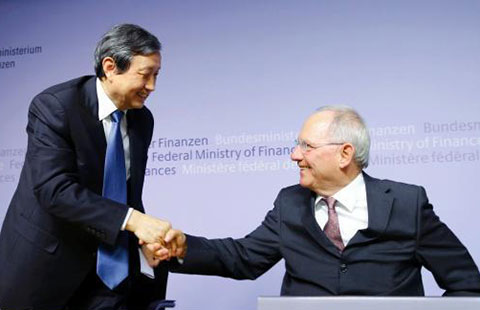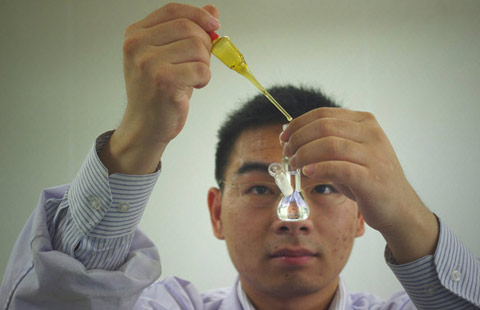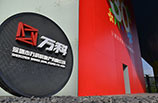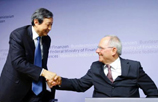Golden oldies still shine in modern era
By WANG YING (China Daily) Updated: 2015-03-23 07:52Jeweler Lao Feng Xiang and other iconic local brands are plotting international expansion
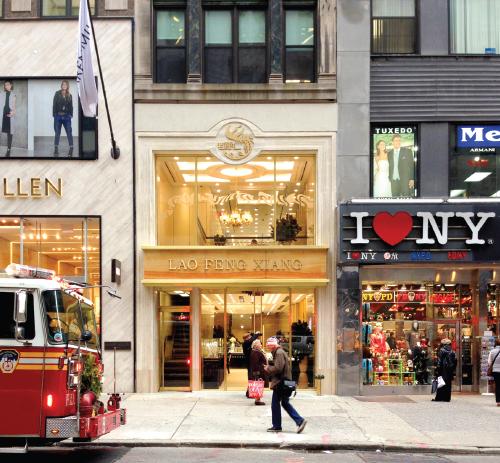 |
|
Old Shanghai jewelry brand Lao Feng Xiang now rubs shoulders with Tiffany and Cartier on Fifth Avenue.[Photo provided to China Daily] |
Shanghai jewelry brand Lao Feng Xiang opened a 400-square-meter store on Fifth Avenue just before Christmas. Its neighbors now include Tiffany, Cartier and Bvlgari.
Since the New York branch launched on Dec 5, overseas Chinese have been flocking there to snap up its traditional accessories, many of them made of gold, and other pieces designed to suit more Western tastes. The brand is over 150 years old.
The gold-colored store, Lao Feng Xiang's second outside China, shows a mix of both Chinese and American culture in terms of its design, said spokesman Wang Ensheng.
In Chinese culture, the phoenix (feng) is the king of all flying creatures. It generally denotes good luck. It is a fitting emblem for a brand that has flown to the top of the domestic jewelry market.
It is one of more than 220 time-honored Shanghai brands. Like the vast majority, it has experienced dramatic swings in fortune. Like a select few, it continues to hold Chinese consumers in the palm of its hand.
As one of the nation's key business hubs, Shanghai has the largest number of time-honored brands in China. They range from snack food and clothing to make-up, stationery and traditional Chinese medicine.
Most have a rich and colorful history, a high quality of craftsmanship and star products that give them a market edge.
More than 70 percent of local Shanghainese remain loyal to the brands of their childhood, surveys show. They prefer Bright products (food and dairy) to imported goods, and like wearing Three Guns underwear instead of foreign brands, according to Jiang Weihong, a researcher from the Shanghai Academy of Social Sciences who specializes in studying brands.
At the moment, Shanghai Lao Feng Xiang accounts for about 95 percent of the parent company's sales revenue. It contributed 90 percent of its profits last year.
The brand has expanded from a few dozen branches a decade ago to more than 2,800 stores last year. Sales revenue grew 45-fold from 2001 to 32.98 billion yuan ($5.28 billion) in 2013, accounting for 11.34 percent of the domestic market.
Over the same period, it saw its profits surge by many more times. And last year, when an industry lull set in, it still outperformed many of its peers.
Encouraged by the success of its two stores in Sydney and New York, it will soon open another branch in Vancouver. Three more are due to open in Hong Kong this year. Others in the UK and New Zealand are in the pipeline.
Based on Wang's calculations, annual revenue of 10 billion yuan from its overseas markets is a realistic target within five years.
- Israel requests to join Asian Infrastructure Investment Bank
- Chinese stocks rebound on April 1
- China, the West in Africa: more room for cooperation than competition
- Nanjing cuts taxi franchise fees
- Air China increases flights to Milan, Paris
- JD.com raises delivery charges
- Veteran corporate strategist upbeat about China economy
- L'Oreal China sales revenue up 7.7% in 2014

